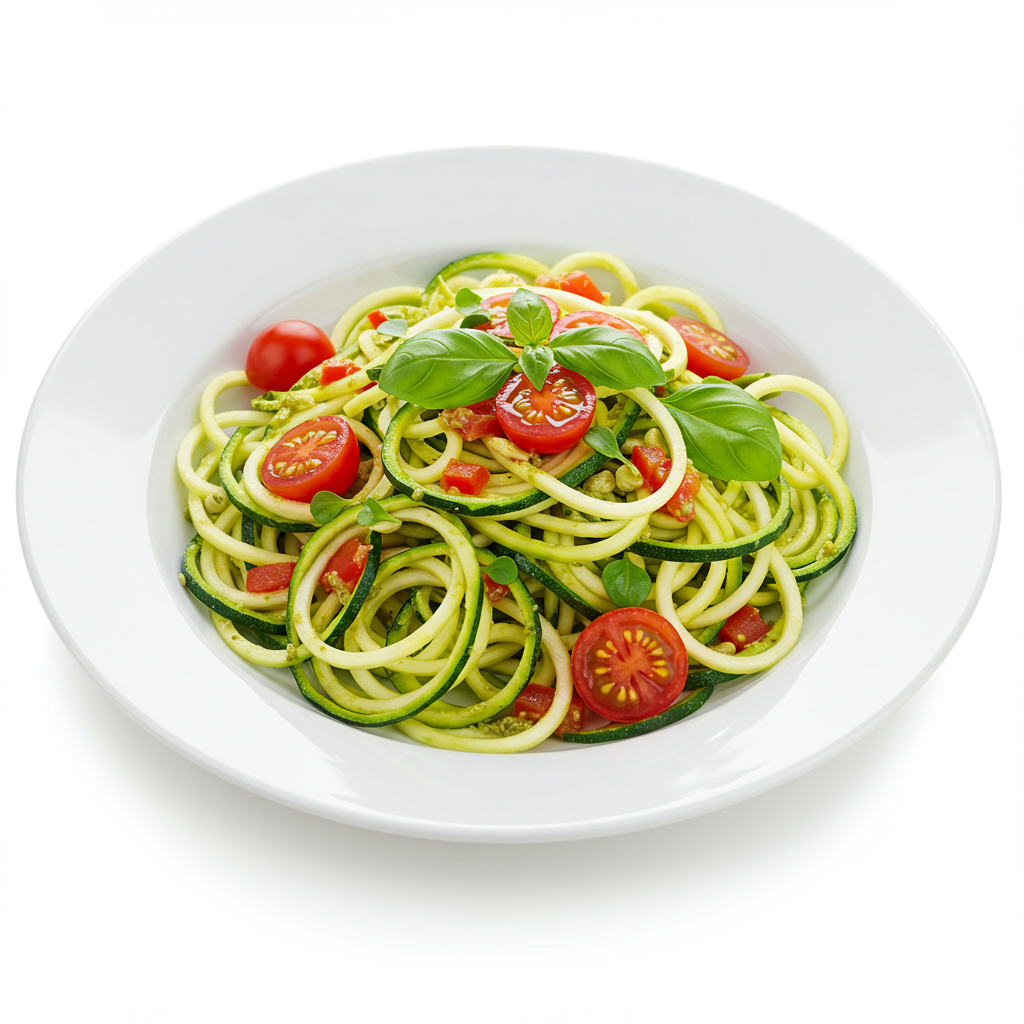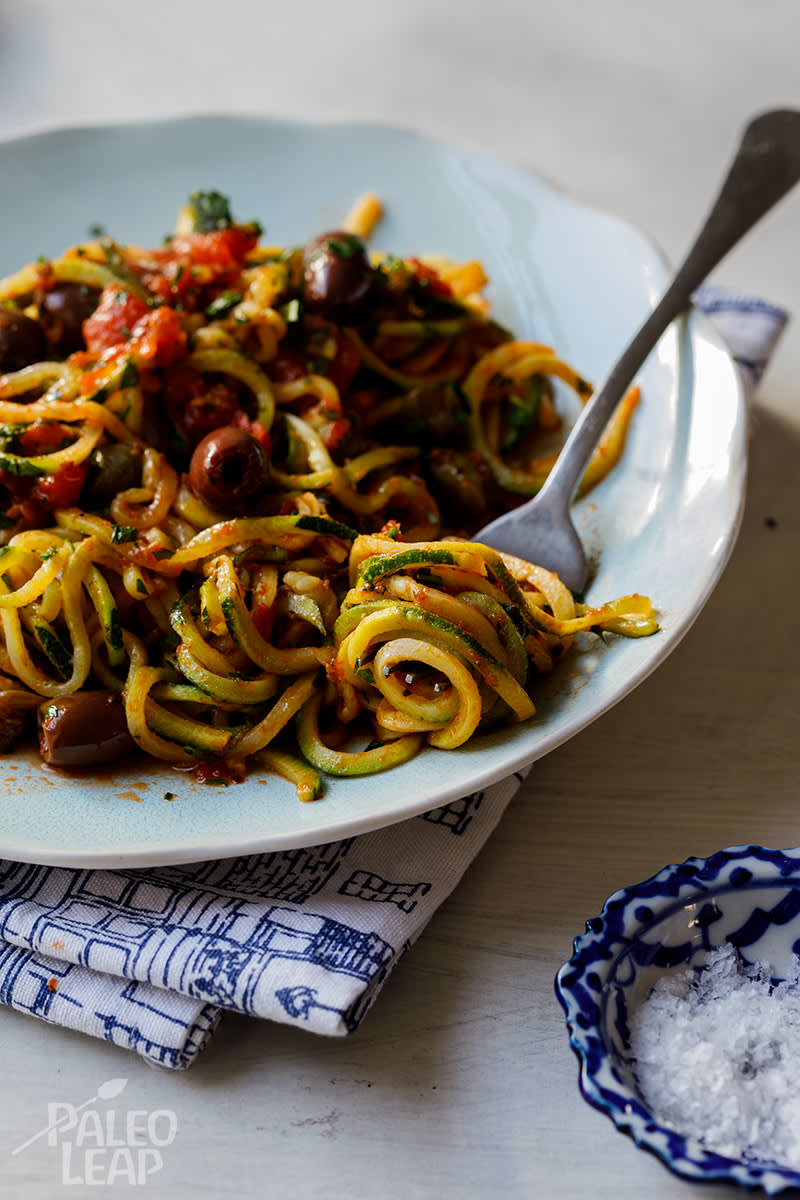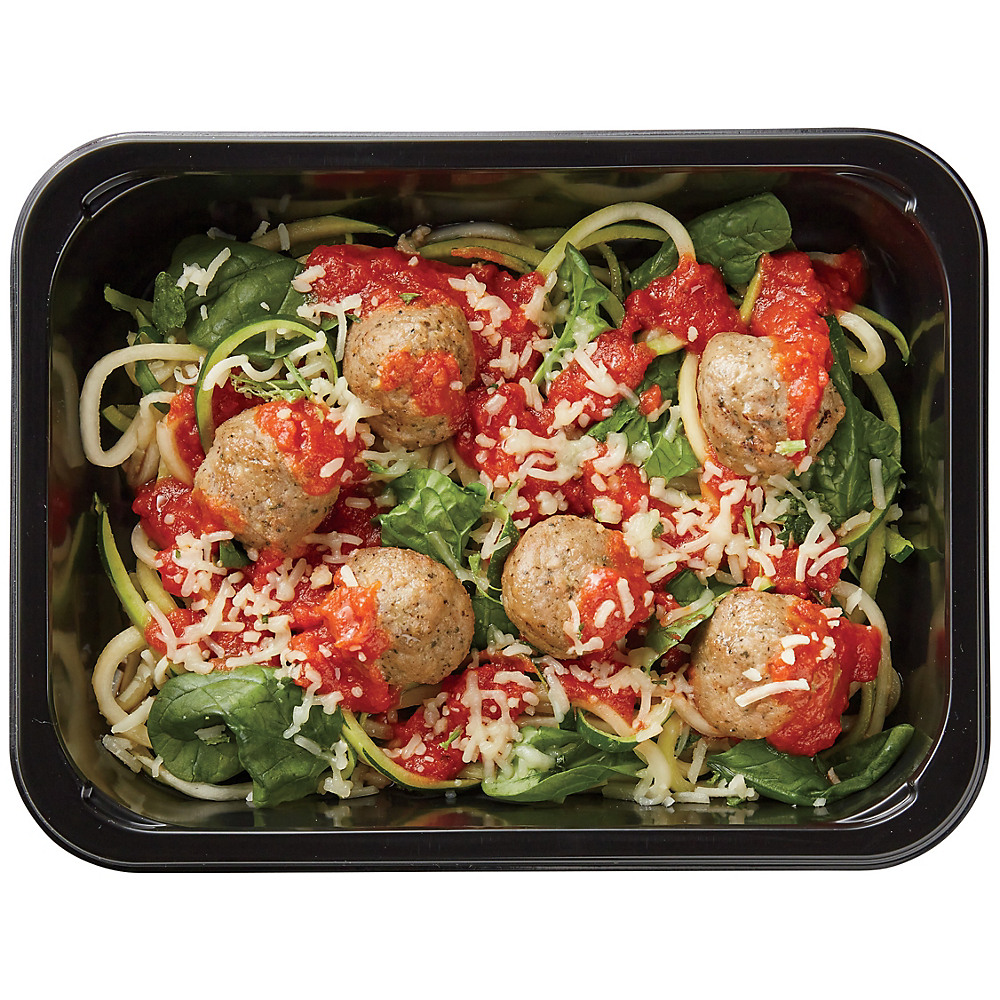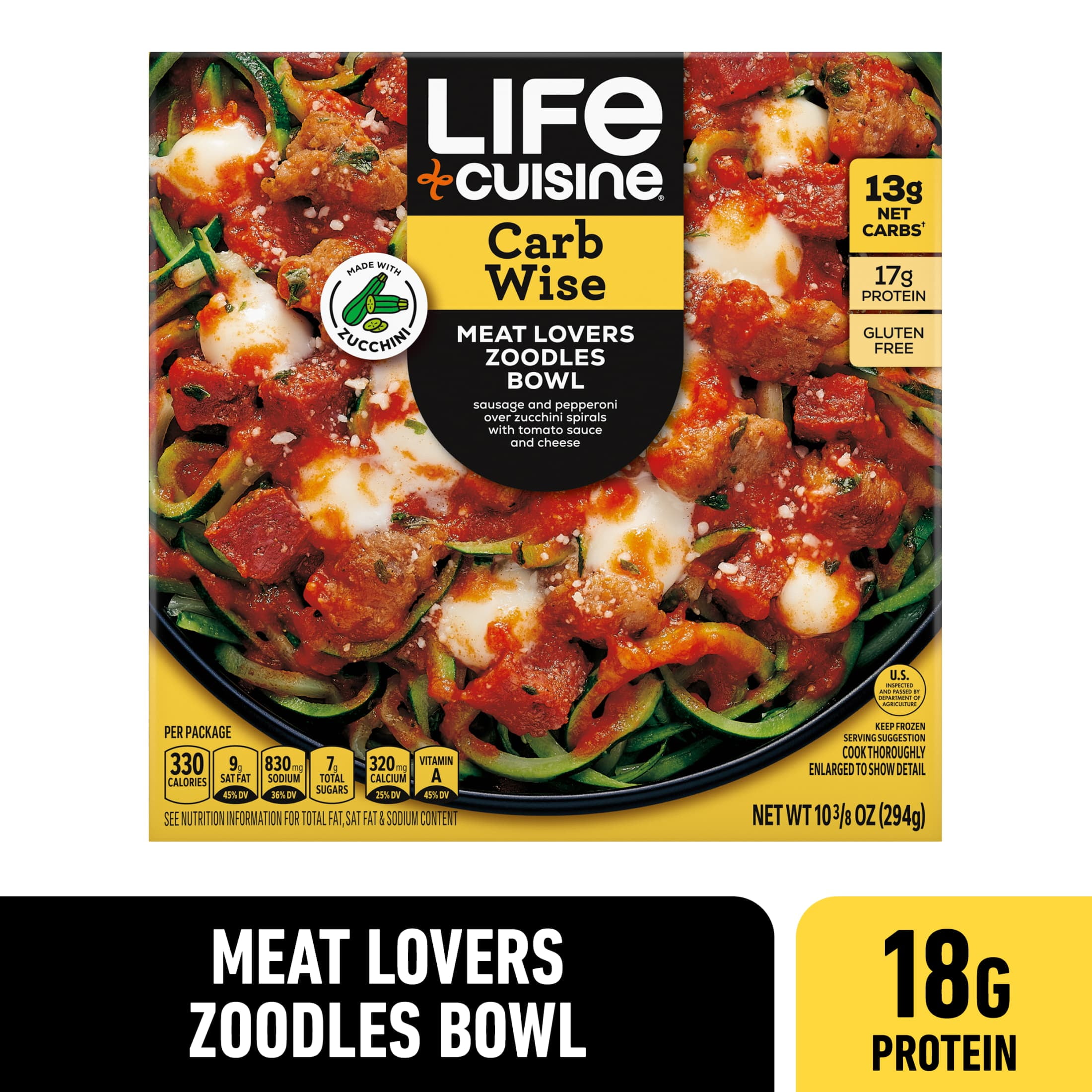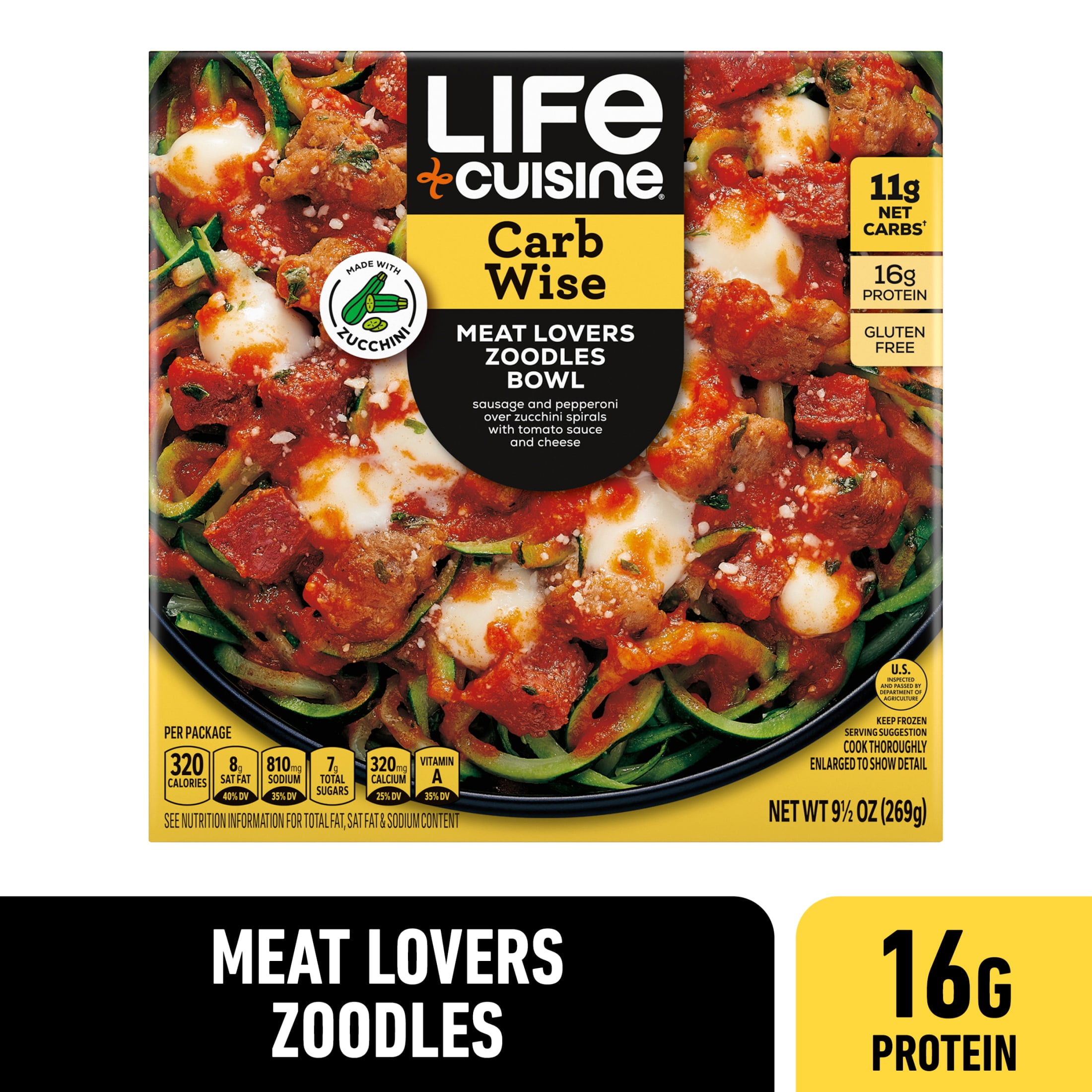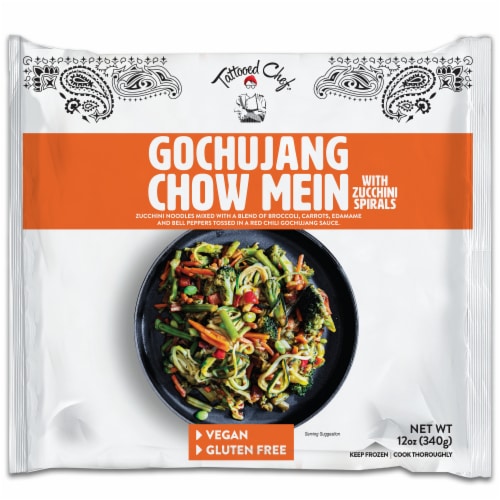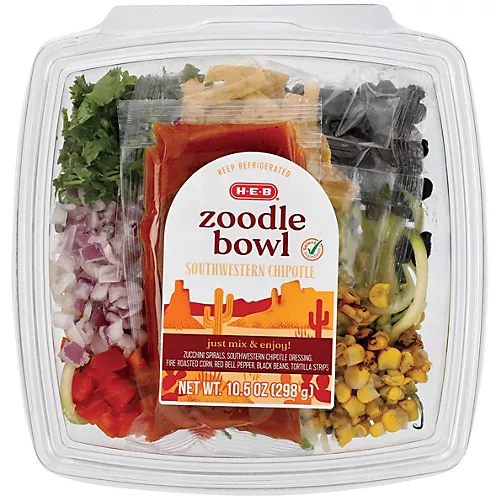Zucchini Noodle Dish
Zucchini Noodles, often referred to as 'Zoodles,' are a nutritious and low carb alternative to traditional pasta. They are created by spiralizing fresh zucchini into noodle-like strands, which maintains the fiber, vitamins, and minerals present in this versatile vegetable.
Zoodles are excellent for those mindful of their diet or looking for gluten-free options. They can be served both raw or cooked, making them adaptable to a variety of dishes like salads, soups, and stir-fries. The mild flavor of zucchini also makes it a seamless addition to numerous recipes.
75%
CARBS
0%
FAT
25%
PROTEIN
Featured Articles
16 Zucchini Noodle Dish Products
Meal Simple by H-E-B Low-Carb Lifestyle Meatballs & Zucchini Noodles with Marinara
Meatlovers Zoodles Italian Sausage And Pepperoni Made With Pork, Chicken & Beef Over Zucchini Spirals With Tomato Sauce & Cheese Style Bowls, Meatlovers Zoodles
Yellow Squash & Zucchini Noodles Bowl
NA KITCHEN Zucchini & Summer Squash Noodles
Life Cuisine Meatlovers Zoodles Bowl Frozen Entrée
Tattooed Chef Frozen Gochujang Chow Mein with Zucchini Spirals
Zucchini Squash Noodles
H-E-B Southwestern Chipotle Zoodle Salad
Zucchini Noodle Salad Cup
35 Recipes for Zucchini Noodle Dish
6
Zesty Chicken Zoodle Bowl
4
Lemony-Garlic Shrimp over Zucchini Noodles
4
Creamy Chicken Zoodle Delight
4
Creamy Bacon Zoodle Alfredo
2
Garlicky Shrimp Zoodles in a Flash
5
Crispy Chicken Katsu Zoodle Ramen
2
Zesty Parmesan Garlic Zucchini Noodles
4
One-Skillet Cheesy Taco Zucchini Noodle Delight
Zucchini Noodle Dish FAQ
What are zucchini noodles?
What ingredients do I need to make zucchini noodles?
Whats the best way to prepare zucchini for making noodles?
How do I cook zucchini noodles?
What are some tips for cooking zucchini noodles?
What are some ingredient substitutions for zucchini noodles?
How can I store leftover zucchini noodles?
What are some common mistakes to avoid when making zucchini noodles?
Expiration & Storage Tips
When does Zucchini Noodles expire?
If you keep them in the package unopened, zucchini noodles can last in your refrigerator for 2-3 days past their 'best by' date you see printed on the package before starting to spoil. It's best to consume them within this window when they're at their freshest. Once you've opened the package, try to eat them within 2-3 days for the best taste and safety. Frozen zucchini noodles can have an impressive shelf life up to 8 months!
How do you tell if Zucchini Noodles is bad?
Spoiled zucchini noodles usually give off a clear sign they're past their prime. First, check the noodles for any visible mould - this is a definite indication that you should not consume them. If there's no mould, but the noodles have turned a dark green or black color and emit a sour, rotten smell, this is another sure sign that they're no good. Also, if the noodles have become slimy, they're likely bad and should be thrown out.
Tips for storing Zucchini Noodles to extend shelf life
• Always store zucchini noodles in the fridge, whether they're packaged or homemade. This helps to maintain their freshness and prevent spoilage.
• If you've opened a package of zucchini noodles, try to keep them in their original packaging and wrap the package tightly with plastic wrap to limit their exposure to air.
• If you've made your own zucchini noodles, keep them stored in an airtight container to keep them fresh for longer.
• You can freeze your zucchini noodles to extend their shelf life. Lay them flat on a baking sheet, freeze them, and then transfer them to a zip-top bag for longer-term storage. This way, they won't stick together, and you can grab just as many as you need when you're ready to cook.
• To defrost, simply toss your frozen zucchini noodles directly into the pan to cook - no thawing necessary!
Health Info
Macros
4g
CARBS
0g
FAT
1g
PROTEIN
Allowed on these diets
MEDITERRANEAN
LACTOSE FREE
GLUTEN FREE
